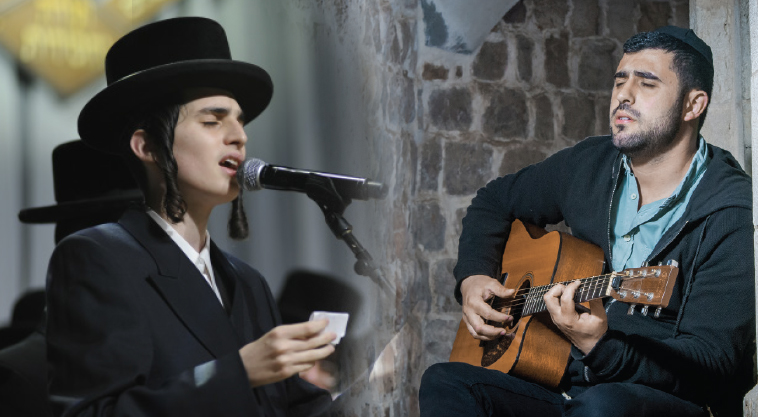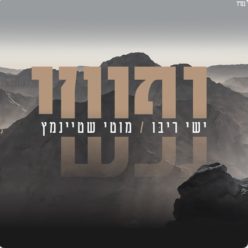Shmuel Yefet, the soft-spoken keyboard player and composer behind “Nafshi” — the recently released hit duet between Ishay Ribo and Motti Steinmetz, is credited with bringing together two worlds of Jewish music. Yet Yefet says that the idea of the chassidish icon singing together with the popular Israeli entertainer originated when Ishay met Motti at an event in Jerusalem. “He was overcome by the emotion in Motti’s singing and loved the voice,” says Yefet, “and really wanted to work on something together with him.”
First, the popular French-born guitarist, singer, and songwriter tried to compose something that would be appropriate, but nothing he came up with seemed suitable for Steinmetz’s chassidic style or vocal range. But Ribo was determined, and so he turned to other composers.
“It was Ruvi Banet, Steinmetz’s producer, who called me with the challenge,” Yefet says. “The idea was to create a song that would express two very diverse voices, Israeli folk with strong spiritual influences melded with Steinmetz’s chassidish vocal style. Since I was a child, I’ve loved the holy words of Anim Zemiros, and as I sat down in the studio with Ruvi I had the siyata d’Shmaya to compose a song for them. The entire melody was ready within a few minutes and I recorded it to send to Ishay and Motti. It was exactly what they’d been looking for.”
Arranging and producing the song was another challenge. The two singers have different vocal ranges and usually sing on different scales and tones. “A lot of musical brains worked on it, but the main credit goes to arranger David Ichilevitz. His arrangements are absolutely stunning,” Yefet says.
Yefet, a popular Israeli keyboard player and guitarist, is also the composer of “Ke’ayal Taarog,” one of Motti Steinmetz’s early hits. “To be honest, I think ‘Nafshi’ would be a powerful song even if it were sung only in Ivrit or only with a chassidish pronunciation. But the combination of Ishay and Steinmetz’s vocal talent and power has just wowed people,” he says. Steinmetz modifies his trademark chassidish inflection to use a more universal Ashkenazi style for this song, somewhat coming closer to Ribo’s modern Hebrew, but when those two voices, which nobody expected to share a song, actually soar and harmonize together, the creation becomes a yearning prayer of unity that surely rises upward. (Originally featured in Mishpacha, Issue 734)



